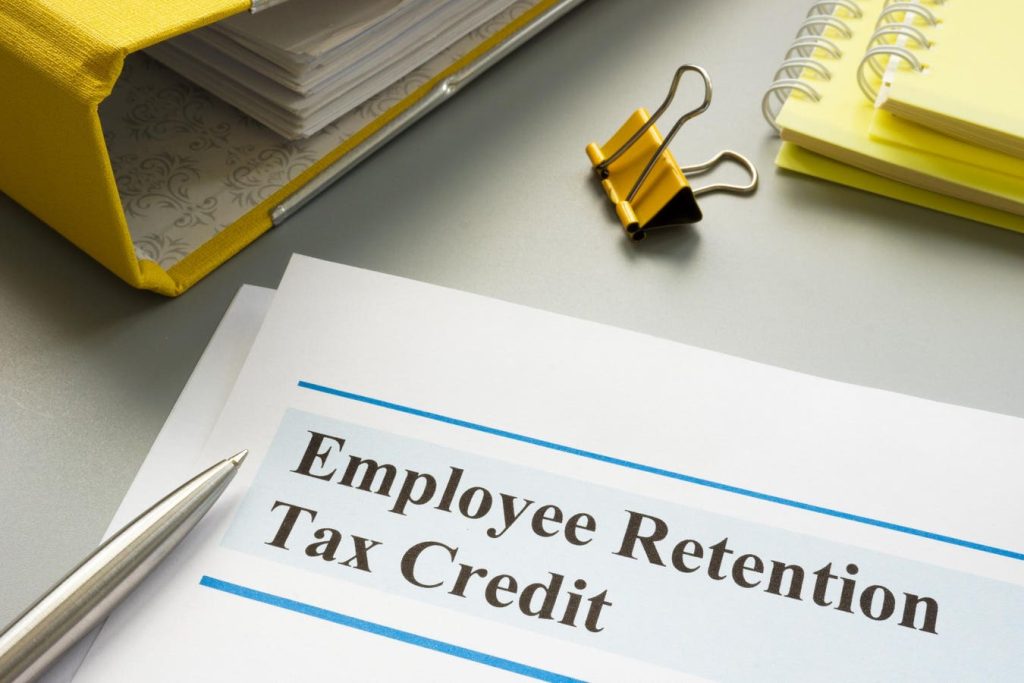At the peak of the pandemic, Congress established the Employee Retention Credit (ERC), a program designed to help eligible employers stay afloat during the COVID pandemic. The lure of free money proved to be too much for some, and as checks rolled out, the IRS began to point fingers at those the agency says were stealing money by inflating claims and filing bogus claims, resulting in billions of dollars in fraud.
Now, some businesses that were impacted by the program—and the crackdown—are fighting back. A recent court decision in Utah suggests that businesses are willing to file lawsuits against ERC advisors, but the result also illustrates that a win isn’t guaranteed.
The Allegations
The case, Greenway Equipment Sales v. ERC Specialists, LLC et al, was filed on October 14, 2024, and alleged that the defendants “knowingly induced” the plaintiff to file an inflated and incorrect ERC claim with the IRS.
The case was filed by Greenway Equipment Sales, a John Deere equipment wholesaler headquartered in Bangor, Maine. The defendants included ERC Specialists, an LLC with headquarters in Orem, Utah, and Tax Rebate Specialists, LLC, an LLC headquartered in Florida. Several individuals were also named in the lawsuit for their alleged roles.
According to the complaint, Greenway was aware of the ERC but did not consider applying for the credit until they were approached by someone with Tax Rebate Specialists, who encouraged them to work with ERC Specialists.
Greenway alleged that the defendants employed hard-sell tactics, emphasizing the need to “Act now!” while discouraging potential clients from consulting with a CPA regarding their eligibility. This was accomplished, Greenway charged, by statements and fake client testimonials on the ERC Specialists’ website, which implied that a CPA would be incorrect in determining that the potential client’s business did not qualify for the credit. According to court documents, some of these statements included: “No need to be the guinea pig for your CPA. We average 10-20% more funding than a CPA not familiar with the program,” and “When I heard about the ERC program I reached out to my CPA. 30 minutes later he called and said I didn’t qualify. Out of curiosity, I had ERC Specialists see if I qualified. Turns out I received the ERC for 7 of my 9 employees. Highly recommended. – Scott Moore.”
Greenway also alleged in its complaint that the defendants used advertisements, statements, and representations regarding their services, expertise, and client satisfaction, that “were intentionally false and misleading.” Instead, Greenway alleged that the defendants “lacked any more knowledge, skill, or ability to determine eligibility for the ERTC, over an ordinary tax preparer, CPA, or layperson.”
Based on the claims, Greenway signed up, agreeing to pay ERC Specialists 10% of the expected tax credit as a fee—the fee turned out to be $72,965.70.
The agreement also provided that if “during the discovery effort it is determined that no credit can reasonably be qualified for under the law or the Internal Revenue Service (“IRS”) withholds claimed funds, no fee will be charged, and any deposits will be returned.” The agreement also stated that “[i]n the event the Internal Revenue Service disqualifies all, or a portion of any credits after they are received by client, ERC Specialists shall not be required to return the fee charged for services provided.”
(Tax Rebate Specalisists, LLC, was not a party to that contract.)
Greenway filed for—and received—ERC money. Later, however, Greenway met with another consultant and determined that it was ineligible for the program and applied through one of the IRS amnesty programs to repay the money. As part of the program, Greenway agreed to voluntarily pay back 80% of the ERC money that it received.
Greenway alleged in its lawsuit that the defendants knew the company didn’t qualify but filed anyway as part of a scheme to simply collect fees. The court disagreed. On October 8, 2025, the case was dismissed.
The Judge’s Ruling In The ERC Case
The defendants moved to dismiss the complaint for lack of standing, arguing that Greenway didn’t suffer an injury. That’s important because, to have standing to bring a lawsuit, a party must be able to prove both that a harm occurred (or is about to occur).
The judge agreed, finding that even with the return of the ERC money, Greenway was still ahead. Greenway received $729,657 in ERC money from the IRS. After voluntarily participating in the IRS’s amnesty program, Greenway was allowed to keep $145,931. Of that, Greenway paid ERC Specialists $72,965.70 in fees. That means, the judge found, that Greenway still netted $72,965.
The judge also relied on language from the ERC agreement. Greenway agreed that it would not rely on ERC Specialist’s representations about the tax credit, and as a result, ERC Specialists would not be liable for incidental or consequential damages. Specifically, the agreement stated, “ERC Specialists’ liability under this agreement is limited to actual direct damages and is limited to the amount ERC Specialists received from client.”
Judge Kimball wrote that “Greenway suffered no penalties in receiving the credit.” And, the Judge noted, Greenway didn’t allege that the IRS attempted to claw back the tax credit, that the IRS audited the filing, or that the IRS issued penalties related to the tax credit. Greenway avoided those hypothetically potential penalties, he found, by participating in the amnesty program.
“Even if there was fraud or misrepresentation,” Kimball wrote, “Greenway is net positive through this process. It obtained money it alleges it was not entitled to receive.” And with that, the case was dismissed.
(None of the attorneys for Greenway, ERC Specialists, LLC, and Tax Rebate Specialists, LLC, offered comment.)
The ERC Program
The case focused on the ERC program which began during the pandemic. Under the ERC program, eligible employers included those that paid qualified wages to some or all employees after March 12, 2020, and before January 1, 2022. Typically, to qualify, a business needed to demonstrate that a government order shut the business down due to the pandemic during 2020 or the first three calendar quarters of 2021, or that the business experienced a specific decline in gross receipts during the relevant periods in 2020 or the first three calendar quarters of 2021. Some businesses may also qualify as recovery startup businesses for the third or fourth quarters of 2021.
The amount of the credit was significant: 50% of up to $10,000 in wages, meaning it can be as high as $5,000 per employee in 2020 and as high as $21,000 per employee in 2021.
ERC Was A Magnet For Fraud
According to the IRS, the program was a magnet for fraud. In September 2023, citing “rising concerns about a flood of improper Employee Retention Credit claims,” the IRS announced an immediate moratorium on processing new ERC claims. “We assumed we’d see a trickle,” then-serving IRS Commissioner Danny Werfel said, referencing the timing of the claims. “We are seeing a tsunami.”
At the time of the announcement—well after the pandemic had ended—the IRS reported that it had received 3.6 million ERC claims. The open inventory currently includes approximately 600,000 returns—most of which were received within the last 90 days. That represents 15% of all ERC claims since the program opened.
Werfel ordered the moratorium following growing concerns inside the tax agency and from tax professionals, as well as media reports, that a substantial share of new claims from the aging program are ineligible. The fear from tax pros was that businesses were being pressured and scammed by aggressive promoters and marketing, and were therefore making improper ERC claims that could put them at financial risk.
To address some of these issues, in December 2023, the IRS announced a voluntary disclosure program (VDP) for businesses that wish to repay the money they received after filing erroneous ERC claims. The program closed on March 22, 2024, after the IRS received over 2,600 applications with $1.09 billion of improper claims. Businesses accepted into the program had to pay only 80% of the credit received. In addition, the IRS did not charge interest or penalties on any credits that were repaid. And, if the IRS had paid interest on an ERC refund claim, businesses would not need to repay that interest.
Last November, the IRS launched a second ERC voluntary disclosure program, which was only applicable to tax periods in 2021. Under that version, businesses were required to repay 85% of the credit received. As before, the IRS did not charge interest or penalties on any credits that were repaid promptly. And as before, if the IRS paid interest on your ERC refund claim, businesses didn’t need to repay that interest.
Businesses that didn’t qualify for the voluntary disclosure program but submitted a questionable claim could also consider a withdrawal. Under the withdrawal option, individuals who have filed an ERC claim but have not received a refund can withdraw their submission, avoiding future repayment, interest, and penalties.
ERC Criminal Cases
While some of the improper reporting may have been caused by confusion, the IRS claimed that there was also deliberate fraud. By July 1, 2024, CI had initiated 460 criminal cases, with potentially fraudulent claims worth nearly $7 billion. By late last year, 37 investigations had resulted in federal charges, with 17 investigations resulting in convictions and nine sentences, averaging 20 months.
Those cases are still being worked. Earlier this year, the government filed charges against seven people, alleging that they attempted to steal more than $600 million related to COVID-19 tax credits.
ERC Under OBBBA
The One Big Beautiful Bill Act (OBBBA), signed into law on July 4, 2025, also tackled the ERC program. Notably, under OBBBA, the IRS will automatically deny any third and fourth-quarter 2021 claims filed after January 31, 2024. OBBBA also extends the statute of limitations to review ERC claims that have already been paid for those same quarters. By widening the statute to six years, the IRS will now be able to review those ERC claims through 2030.
In addition, OBBBA imposed strict due diligence requirements and increased penalties on ERC promoters, generally defined as service providers who marketed or advised on ERC claims and charged fees based on the value of those claims.
What’s Next
It’s important to note that this case was dismissed based on a motion claiming that the plaintiffs lacked standing. That means that there was no trial—neither side testified in court nor were there any witnesses. It also means that some of the underlying claims—like false advertising and fraud—weren’t addressed.
Will we see more of these kinds of claims? As the IRS continues to sort through cases, my guess is yes.
Read the full article here












